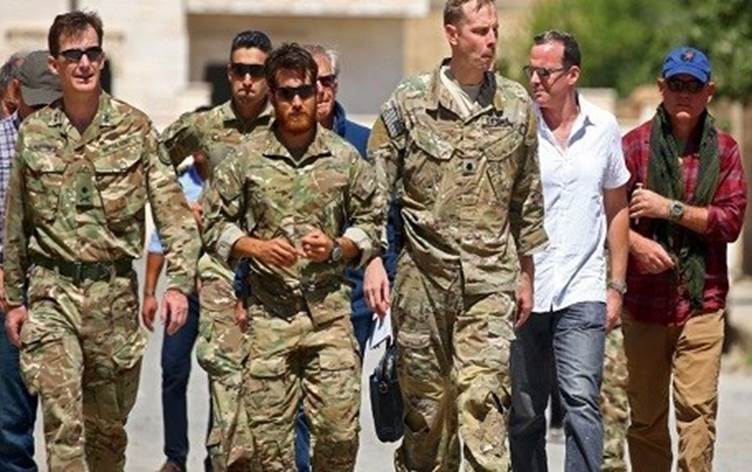‘More US diplomats on the ground’ in Syria post-ISIS, says Mattis

ERBIL, Kurdistan Region – The United States intends to bring more diplomats into Syria as efforts to combat ISIS in the country shift from a military offensive to stabilization, the US Secretary of Defense stated.
More than 98 percent of land that was once held by ISIS in Syria and Iraq has been liberated, according to coalition figures reviewing the situation at the end of a year that saw major military victories against the terrorist group.
The focus of many is now moving towards reconstructing war-ruined cities, helping populations return home, and ensuring that ISIS cannot regroup.
With this shift to stabilization, “you’ll see more US diplomats on the ground,” US Secretary of Defense James Mattis said on Friday, according to Reuters.
“Well when you bring in more diplomats, they are working that initial restoration of services, they bring in the contractors, that sort of thing,” he added, explaining that funds intended for rebuilding the country have to be administered “so it actually does something, it doesn’t go into the wrong people’s pockets.”
The scale of the destruction in the city of Raqqa, once the self-declared capital of ISIS’ so-called caliphate, shocked residents returning to see their homes after months of conflict. Many residents have been killed by explosives left behind by militants and local aid workers have expressed worry that there is no concerted effort to rebuild.
The US-led coalition is working with local forces and civil councils in Raqqa.
The Raqqa Internal Security Forces, tasked with securing the city, are “bravely searching for and removing the many improvised explosive devices and booby traps left behind by ISIS terrorists, so local residents can return to their homes and get back to their lives,” British Army Major General Felix Gedney of the coalition told Pentagon press on Wednesday.
Over 830 metric tons of humanitarian aid have been delivered in the Raqqa region, Gedney detailed, as the coalition “redoubles” its non-military support.
Bringing in more American civilians at this stage “is an attempt to move toward the normalcy and that takes a lot of support,” said Mattis.
While the focus is now largely on post-ISIS, the war with the militant group is not over. “ISIS retains the capability to launch successful surprise offenses and retake territories from Assad forces,” Maj. Gen. Gedney said, noting that units of the coalition-backed Syrian Democratic Forces (SDF) continue to clash with ISIS.
SDF announced on Friday they took four villages from ISIS, killing 67 militants near Hajin town, east of the Euphrates River about 30km from the Syria-Iraq border.
More than 98 percent of land that was once held by ISIS in Syria and Iraq has been liberated, according to coalition figures reviewing the situation at the end of a year that saw major military victories against the terrorist group.
The focus of many is now moving towards reconstructing war-ruined cities, helping populations return home, and ensuring that ISIS cannot regroup.
With this shift to stabilization, “you’ll see more US diplomats on the ground,” US Secretary of Defense James Mattis said on Friday, according to Reuters.
“Well when you bring in more diplomats, they are working that initial restoration of services, they bring in the contractors, that sort of thing,” he added, explaining that funds intended for rebuilding the country have to be administered “so it actually does something, it doesn’t go into the wrong people’s pockets.”
The scale of the destruction in the city of Raqqa, once the self-declared capital of ISIS’ so-called caliphate, shocked residents returning to see their homes after months of conflict. Many residents have been killed by explosives left behind by militants and local aid workers have expressed worry that there is no concerted effort to rebuild.
The US-led coalition is working with local forces and civil councils in Raqqa.
The Raqqa Internal Security Forces, tasked with securing the city, are “bravely searching for and removing the many improvised explosive devices and booby traps left behind by ISIS terrorists, so local residents can return to their homes and get back to their lives,” British Army Major General Felix Gedney of the coalition told Pentagon press on Wednesday.
Over 830 metric tons of humanitarian aid have been delivered in the Raqqa region, Gedney detailed, as the coalition “redoubles” its non-military support.
Bringing in more American civilians at this stage “is an attempt to move toward the normalcy and that takes a lot of support,” said Mattis.
While the focus is now largely on post-ISIS, the war with the militant group is not over. “ISIS retains the capability to launch successful surprise offenses and retake territories from Assad forces,” Maj. Gen. Gedney said, noting that units of the coalition-backed Syrian Democratic Forces (SDF) continue to clash with ISIS.
SDF announced on Friday they took four villages from ISIS, killing 67 militants near Hajin town, east of the Euphrates River about 30km from the Syria-Iraq border.
